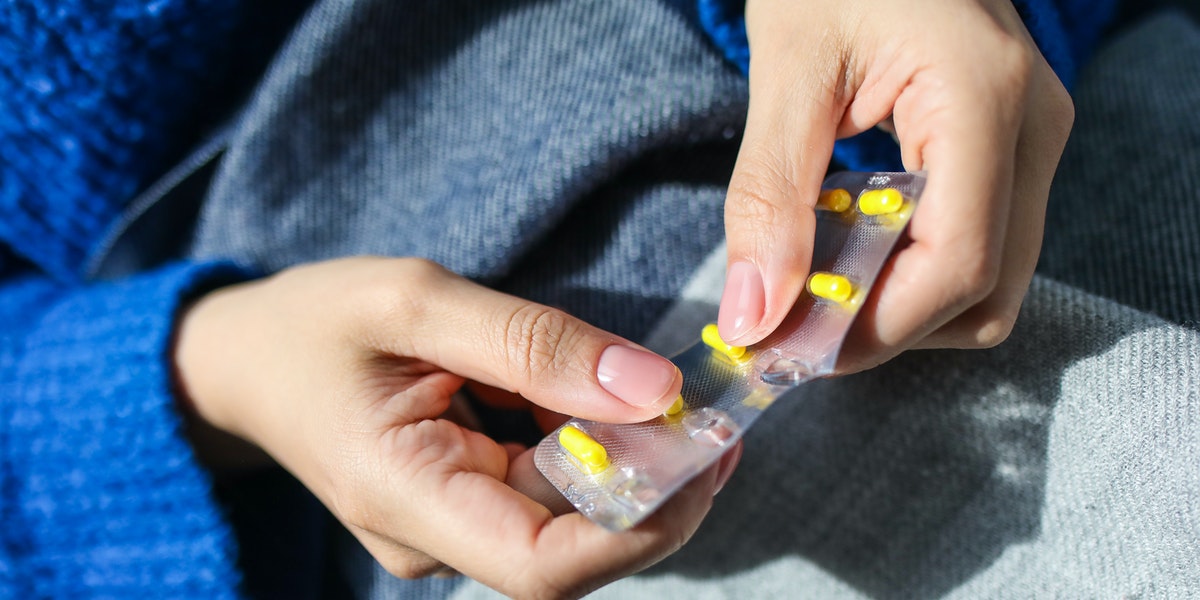Self-medicating happens when you attempt to deal with depression, pain or other intense emotions with the help of drugs, alcohol and other substances. You do not have to be diagnosed with a medical condition to self-medicate. Some people self-medicate in response to normal, everyday pressures like work and family.
That being said, self-medication is not a healthy practice. Not only can you make the wrong diagnosis and potentially delay proper care, but also your risk for dependency and abuse is raised. Let’s learn more about why people self-medicate, the signs to watch for and the different ways to self-treat.
Why Do People Self-Medicate with Drugs and Alcohol?
Self-medicating mental health problems is very common, but it doesn’t work. Drugs and alcohol have a very limited benefit when treating conditions, and they can worsen symptoms. This is why there’s such a strong relationship between mental health and substance use.
Here are some reasons why people are drawn to self-medicating:
- Cheaper than going to the doctor and paying for medication
- Fear of seeking treatment due to negative stigmas
- Easier to hide or deny the condition
- Lack of trust in the medical community
- Fear of side effects from prescribed medications
- Quick, accessible way to feel better in the moment
What are the Signs of Self-Medicating?
Whether you’re worried about yourself or a loved one, it’s helpful to know the signs of self-medicating. This way, you can have an honest conversation about what’s going on and seek a dual diagnosis treatment center in Arizona, should you need it.
Below are the signs that a person is self-medicating with drugs, alcohol or both.
- Avoiding friends, family and other social situations
- Sudden change in activities and social circle
- Secrecy about how you spend your time
- Neglecting physical care, like showering or eating
- Having difficulties in work or school
- New or unexplained financial problems
Forms of Self-Medication
There are many ways to self-medicate – not just one. Some ways are more harmful than others, however, many people turn to drugs and alcohol as their preferred method of self-medication.
Examples of harmful self-medication options are:
- Alcohol. Because alcohol is readily available and socially accepted, it’s usually one of the first choices for self-medication. And, alcohol can temporarily relieve the symptoms of depression and anxiety.
- Opiates. Opiates cause people to feel extremely relaxed, which is why it’s another popular way to self-medicate. However, this high can lead to serious injury or death from an overdose.
- Marijuana. As the laws loosen, more people are turning to cannabis to feel relaxed. Research is mixed on the benefits of marijuana, and self-medicating in excessive amounts can possibly worsen symptoms.
- Stimulants. To relieve symptoms of ADHD or depression, or to focus better at work, school or sports, some people self-medicate with stimulants. But, stimulant drugs wear off quickly and have a high risk for abuse.
If you believe that you are self-medicating with drugs or alcohol, contact Wolf Creek Recovery, a drug rehab in Arizona. We will teach you how to manage your symptoms with therapy, safe medications and alternative therapies.

Finding purpose in pain is what Jonathon does best. He is a strong advocate for those suffering from substance use disorders. As a person in recovery, Jonathon knows how important it is to receive empathy and compassion. He recognizes that each person comes from a different set of circumstances and deserves to be valued and respected.
With a fresh perspective and compassionate attitude, Jonathon works closely with clients to help them let go of the past and know when to take necessary risks. The recovery process is ongoing, which means people need to move forward while applying the skills learned in treatment. Jonathon is a great motivator when it comes time for this!
Jonathon also places emphasis on the family unit and how it can make or break the recovery experience. Individuals with active, supportive families have far better outcomes. Jonathon realizes that it’s impossible to move mountains overnight, but with the right support team and positive attitude, anything is possible.












